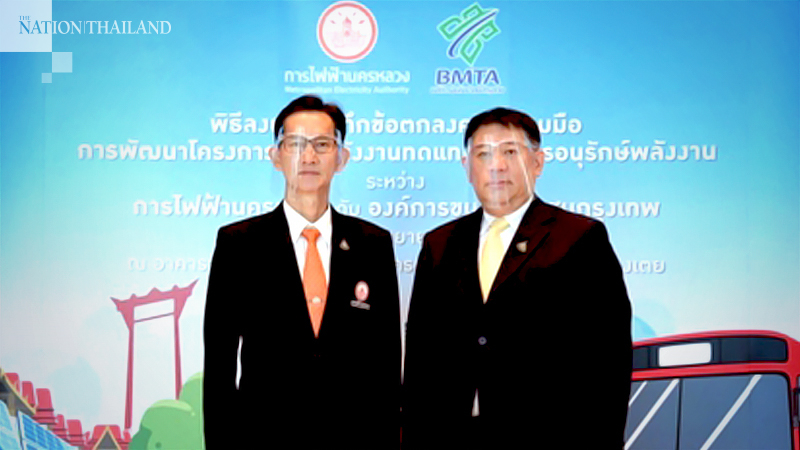
Charging stations for electric buses are set to spring up in Bangkok under a deal signed by the Metropolitan Electricity Authority (MEA) and Bangkok Metropolitan Transit Authority (BMTA) on Monday.
“We hope that the MoU that we signed with BMTA will promote the cooperation for the development of energy-related technology that improves the life of people in metropolitan areas, as well as help driving BMTA to be an energy-efficient organisation,” said MEA governor Keerapat Jiamset.

The charging stations will use solar energy and a Smart Parking system to schedule bus-charging time efficiently.
The two agencies will also be fixing solar panels on public infrastructure and bus stops, implementing a smart street-lighting system with energy-efficient LED bulbs controlled by artificial intelligence, and installing coronavirus-killing lightbulbs on BMTA buses.

Transport Minister Saksayam Chidchob has set a target for the BMTA to gradually replace gasoline-powered buses with electrical buses. The e-buses must be either manufactured domestically or use 50 per cent domestically made parts, in order to promote the country’s e-vehicle manufacturing industry.



